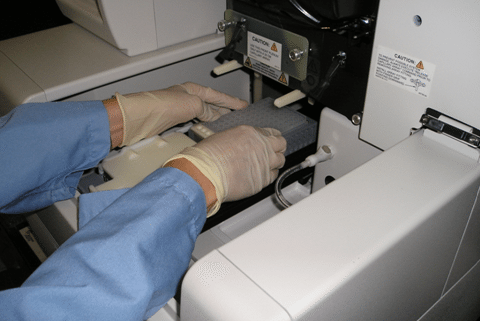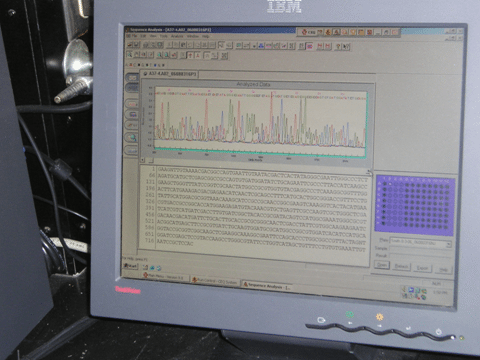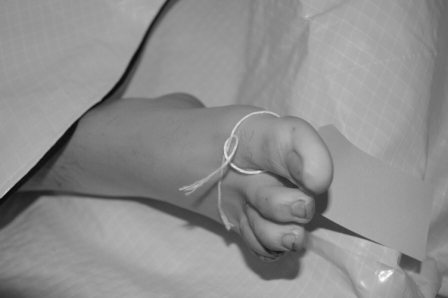CODIS, SMODISH…Start Your Own DNA Database
We’ve all heard the stories of long turnaround time for DNA analysis, and the subsequent submission to CODIS for possible matches, especially in cases related to murder and rape investigations. But, when submitted evidence is for lower priority crimes—car break-ins and small scale drug use and sales, well, it’s safe to say the results are returned at an even slower pace. In some cases, the wait can be as long as 12 to 18 months.
CODIS (Combined DNA Index System), in conjunction with NDIS (National DNA Index System) is the world’s largest database record of offender DNA—10 million DNA profiles. Each of those profiles, merely a series of numbers—is representative of a single person. To match a suspect to one of those stored profiles is definitely not as quick and easy as TV leads us to believe.
First, investigators must collect a piece of evidence containing possible DNA—cigarette butt, bottle, drinking glass, bed sheet, condom, baggie (drug crime), etc. Next, the investigator delivers the packaged evidence to a laboratory where the actual DNA testing is performed (above photo). The laboratory then submits their results, a “forensic unknown,” to CODIS.
Ideally, there’s a local CODIS system in place, where the submitted profile is compared to the profiles of known, local offenders (remember, most crimes are committed by the same people, over and over again, especially in small jurisdictions). If no match is received there, then the profile would be sent to the state CODIS system. No match at the state level and the profile is next entered into the national database for comparison to the 10 million profiles stored there.
So, as you see, it can be a long process. And, in fact, many times the offenders have committed numerous other crimes before a “hit” comes back on the original profile, if at all.
So, some local police agencies are partnering with local private DNA testing companies, in lieu of the government-run NDIS/CODIS, hoping to greatly reduce turnaround times on their evidence. Of course, those private labs must be certified and accredited.
Departments using the private labs are enjoying extremely quick results, in as few as 30 days. And what that means to the police department is that they’re able to solve more crimes at a faster rate, putting the bad guys in jail before they commit a long string of unsolved crimes. And, those low-on-the-priority-list crimes are also solved at a quicker pace. For example, a baggie containing heroin residue is found at the scene of a crime. Unlike the standard month’s-long wait, a quick test on the DNA left on the bag could turn up a near-instant profile match in the local system.
A great example of the local lab/police department system is in Bensalem, Pa., where local police, in conjunction with a local lab, have established their own DNA database (LODIS) of approximately 4,000 samples/profiles. There, officers submit approximately 150 samples each month. Out of those samples, 80 crimes have been solved, as opposed to less than 10 hits from CODIS in the year or so before the Bensalem Township PD started their LODIS database. Turnaround time in the local LODIS system is a scant 30 days or less.
Bensalem is now enjoying a higher case clearance rate. An added bonus is that crime has actually decreased in the jurisdiction. Cases also move through the courts at a faster rate since criminals often take a plea deal when faced with DNA evidence against them.
Well, all this sounds too good to be true, right? Think again, because Rapid DNA testing is the next great law enforcement tool. You think 30 day test results are fast? Try DNA test results in 90 minutes!
Yep, bad guys beware, because with Rapid DNA the police could have your name in hand before the victim’s body arrives at the morgue.
*Resource for Bensalem LODIS – Sheriff Magazine, Sep/Oct 2012
*Photos – Me
background: #bd081c no-repeat scroll 3px 50% / 14px 14px; position: absolute; opacity: 1; z-index: 8675309; display: none; cursor: pointer; top: 364px; left: 20px;”>Save








“CODIS, SMODISH…Start Your Own DNA Database”:
hmmmm Sounds like a great informative class for WPA 2013. 🙂
Lee, love the title on this blog. Great info on using private labs.
Yes, Elizabeth, I knew about this because my town has a Corevette they use as the DARE car. It is now painted black and white like a police car but was confiscated by police in a drug raid years ago.
The Federal Gov’t posts auction notices every so often. I’ve never gone but they did a tour on TV news one night showing the stuff confiscated. Some of it was pretty funny, too. I remember seeing houses posted online somewhere at one time. Can’t imagine buying a meth house, but I’ll bet they go cheap.
Our local LEOs also have a bicyle auction every year for unclaimed, confiscated bikes.
Cool! You’re the BEST, Lee!
The government, including local police agencies, is allowed to seize property used in the commission of a crime. Many police departments benefit from the forfeiture of items such as, cash, cars, homes, boats, airplanes, and weapons. These items may be sold at auction, or used by the police. For example, a 2010 Mercedes is driven by drug dealers when making their deliveries. Police stop the car and arrest the occupants for distribution of heroin. The car is seized by the officers who fill out the proper asset-forfeiture paperwork. The vehicle is later forfeited (by the court) to the police department. They, in turn, assign the vehicle to their drug task force where officers use it as an undercover car.
Also, seized property can be sold with the funds received then used for equipment, etc. Normally, though, assets seized in drug deals must be used for the enforcement of drug laws. In the case in the above article, seized assets are used for DNA testing.
So local cops can use federal drug money forfeitures? How is the money handled? and by whom?
I don’t imagine there’s much of a discount. However, in the case of the Pa. department I mentioned, and others, they use money seized from drug dealers/drug crimes (federal drug forfeiture program) to pay for the DNA testing, especially when the testing is related to drug offenses. Therefore, the DNA testing is absolutely free to taxpayers.
This is pretty interesting. I’m embarrassed to say I didn’t realize it took a month for DNA results, much less having to wait a year or more. I would think the problem would be money. At least in my neck of the woods, the politicos swear by “tough on crime,” but the departments are constantly faced with cutbacks. Using private labs would seem to be more pricey. Do they get volume discounts? Or, how does it work?